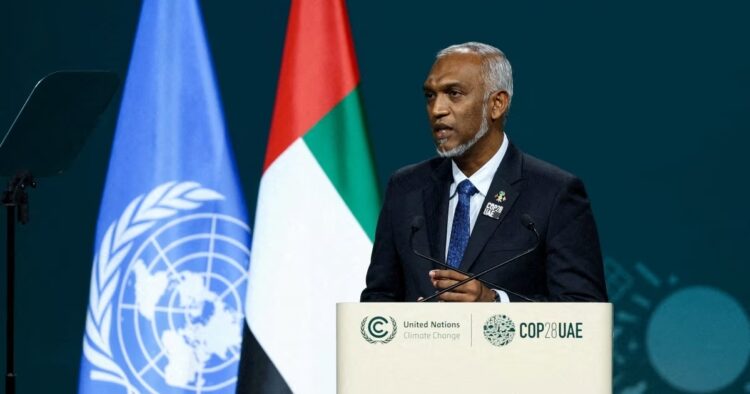Maldives President Mohamed Muizzu recently addressed the nation, acknowledging the significant economic challenges his administration faces. Speaking candidly, he disclosed that due to the country’s high levels of debt, launching new development projects has become unfeasible at present. Muizzu emphasized the importance of transparency, stating that he did not want to mislead the public about the economic situation inherited by his administration.
During a visit to Guraidhoo island, Muizzu expressed that the upcoming two months would be particularly challenging for the nation’s economy. He assured the public that despite the difficulties, efforts were underway to generate income and alleviate financial strain. However, he cautioned that immediate relief might not be achievable, indicating that progress would be more apparent after July.
Highlighting the burden of debt on both government and state-owned enterprises, Muizzu underscored his commitment to sustainable development. He emphasized the need for pragmatic approaches, expressing reluctance to engage in superficial projects merely for political gain, especially with elections on the horizon.
Muizzu’s administration has shown a leaning towards China, a major creditor to the Maldives. He acknowledged the complexities of carrying out development projects amidst debt management efforts, citing limitations on initiating new projects across all islands simultaneously.
Acknowledging public concerns and opposition backlash over his stance on international relations, particularly with India, Muizzu reaffirmed his dedication to fulfilling campaign promises. He referenced consultations with international financial institutions like the World Bank and the IMF, who endorsed his economic manifesto.
Despite warnings about China’s debt-trap policy during his recent visit, Muizzu remains focused on resolving economic challenges. Reports indicate that a significant portion of Maldives’ sovereign debt is held by Chinese institutions, raising concerns about long-term financial stability.
The World Bank has previously cautioned about growing fiscal vulnerabilities and high borrowing costs for the Maldivian economy. With projections indicating substantial debt servicing obligations in the coming years, prudent debt management and fiscal adjustments are deemed necessary to ensure economic resilience and sustainable growth.
In light of these challenges, Faris H Hadad-Zervos, World Bank Country Director for Maldives, remains optimistic about the nation’s growth prospects. However, he stressed the importance of strategic debt management and fiscal reforms to navigate global economic uncertainties and sustain long-term development goals.

















Comments